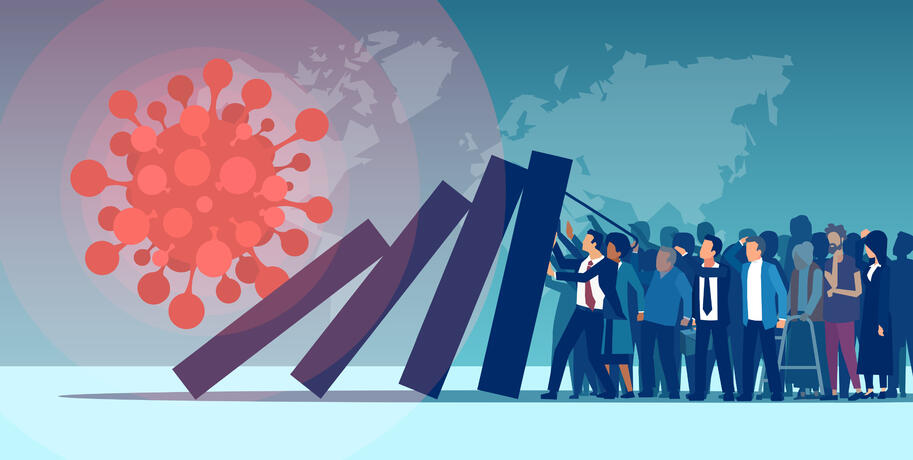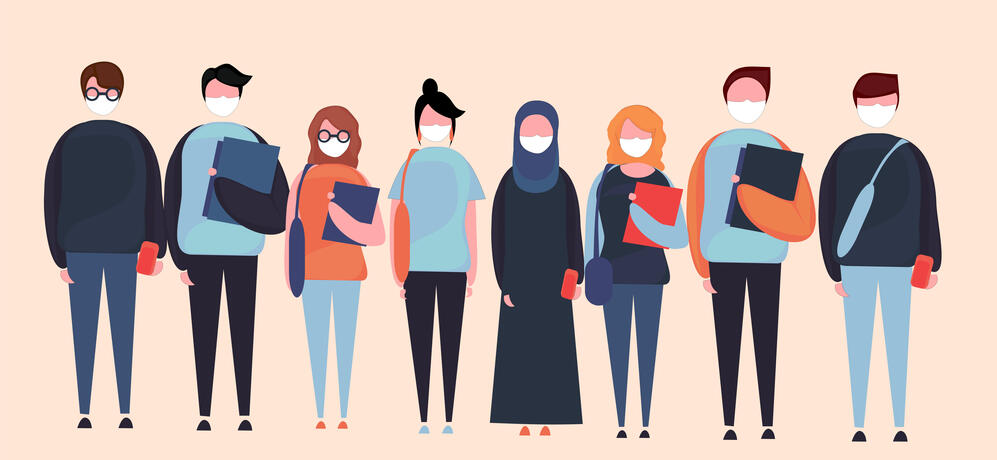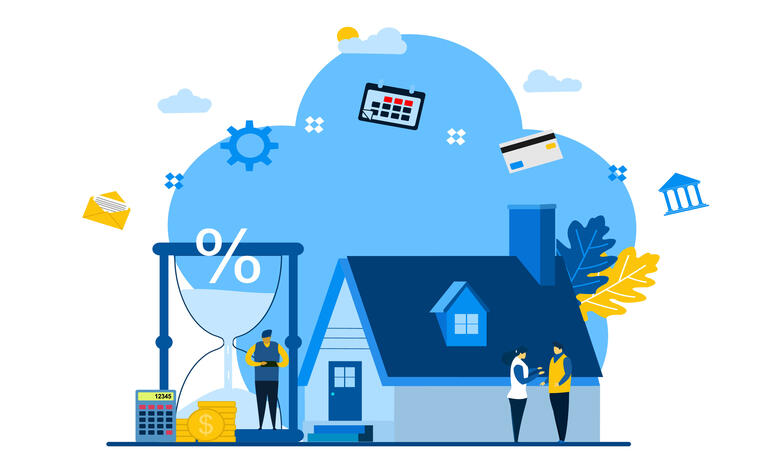
This article was originally published on September 9, 2020.
What does it mean to become an adult? And do times of economic uncertainty impact that?

Sociology Professor Pamela Aronson says there are social markers associated with the transition from adolescence to adulthood — those often include full-time employment, educational attainment and establishing a household — and history shows the economy has an effect on when people achieve these milestones.
For example, data reveals that marriage rates — one of the traditional adulthood milestones in the U.S. — fell by more than 20 percent during the Great Depression. And during the Great Recession of 2008, young adults were not able to become homeowners, which reduced accumulated wealth over time.
Now Aronson — along with Arnaldo Mont'Alvao from Iowa State University and Jeylan T. Mortimer from University of Minnesota — are looking into what that means for those coming of age during the COVID-19 pandemic.
“Typically what we are hearing in the media is that young people are irresponsible. I am taking that and flipping it on its head,” she says. “I want to discuss ways that we, as a society, are not caring enough for young adults who need additional support during the pandemic.”
Using their research findings as a guide, Aronson breaks down areas hitting today’s emerging adults the hardest and gives advice on where we go from here.

The problem: Unemployment or underemployment
Obtaining full-time work and financial stability are generally prerequisites for leaving home, which is one of the most recognized transitional moments from adolescence to adulthood. With the International Labour Organization estimating that more than one in six young people lost their jobs during the pandemic — and those with jobs had their hours reduced by nearly 25 percent — COVID-19 has decreased income and put gaps in the resumes of those in their teens and 20s across the world.
Possible solutions:
Aronson says it’s important to strengthen bridges from school to work — and for people to take advantage of these “bridging opportunities” when they are in place.
She says the United Kingdom’s government is proposing the creation of a fund to support six-month job placement for unemployed young people to gain skills and connections. And Germany already has a hands-on apprenticeship program, which helped keep youth unemployment rates in Germany around 5 percent. In the U.S., it was more than 25 percent. “New government policies and pathways are needed to bridge the gap between school and work, especially for people who have fewer financial resources.”
Young adults attending college in the U.S. have additional resources to help navigate a tough job market. At UM-Dearborn, there are career fairs — there’s a virtual one Oct. 8 — and free career prep options like resume tips and critiques and virtual mock interviews. You could also reach out to campus networking groups to see what internships, co-ops and jobs are available in your field.

The problem: Access to education
With school closures, classrooms going from in-person to remote, and job losses that lessened a family’s ability to pay for tuition and other educational costs, the pandemic caused additional access issues at all levels of schooling across the world.
“Youth may lower their educational aspirations, have increasing difficulty obtaining postsecondary educational degrees, and/or drop out due to lack of resources. These problems could exacerbate pre-existing racial and class inequalities in educational outcomes, leading to increasingly divergent socioeconomic opportunities,” Aronson says.
Possible solutions:
Young people are already tech savvy, but there are specific skills employers are looking for — especially post-pandemic when employers have seen the effectiveness of a remote and automated workforce. Because of this, Aronson says the creation of educational programs for digital skill development for teens and adults should be a key component of national recovery plans. “We need to widen opportunities for re-training as employment in some sectors may not recover.”
She says their research shows that government programs and policies play an important role in how young people fare during times of economic hardship and it is important to increase resources to educational programs for disadvantaged youth and young adults. This can be through enhanced governmental resources like CARES Act funding — Aronson says if you are a student, consider applying if you haven’t yet — or new proposals like “Future for Frontliners,” which will pay for educational costs of COVID-19 essential workers who do not have a secondary degree.

The problem: Stepping back in the adolescent-to-adult transition process
Moving out of your family home is a major milestone in anyone’s life — it’s a tangible sign of gaining independence and becoming an adult.
But with high unemployment rates and wage reductions, many young adults cannot get their first place or have moved back in with parents or relatives until they become financially stable again. Data from the Current Population Survey shows that an unprecedented number of young people in the U.S. moved back home in 2020. Nearly 60 percent of Americans in ages 18-25 said they are now living with parents or grandparents. Returning to live with family may also have an effect on marriage and parenthood, which is pushed back because many want to feel established before adding family responsibilities to their lives.
Possible solutions:
Looking at what's available in the U.S. today, Aronson says there are programs that can help you keep your current residence (if you need to support yourself or your family) or get back on the road back to independent living. These include the Supplemental Nutrition Assistance Program, utility assistance, food pantries, housing resources and others. Aronson says she hopes the U.S. will model what other countries have done to take independent living assistance further — for example, Singapore has a government program that assists young adults in purchasing starter homes.
But more than anything, it’s important to know you aren’t alone in this, she says. And for more established adults to be patient and understanding with the current generation.
“This is a difficult time for all of us. But it’s good to keep in mind that it actually might be more difficult for young people who faced incredible levels of disruptions. The times ahead will not be easy, but remember that we are all doing our best.”
For more information and resources, Aronson gave a recorded talk: “Post COVID-19 Transformation of the Transition to Adulthood around the World.” Aronson, Mont’Alvao and Mortimer’s research “Uncertainty and Disruption in the Transition to Adulthood during COVID-19” will be included in the forthcoming book publication Social Problems in the Age of COVID-19: Volume 2 – Global Perspectives, edited by Glenn Muschert, Kristen Budd, David Lane and Jason Smith.




